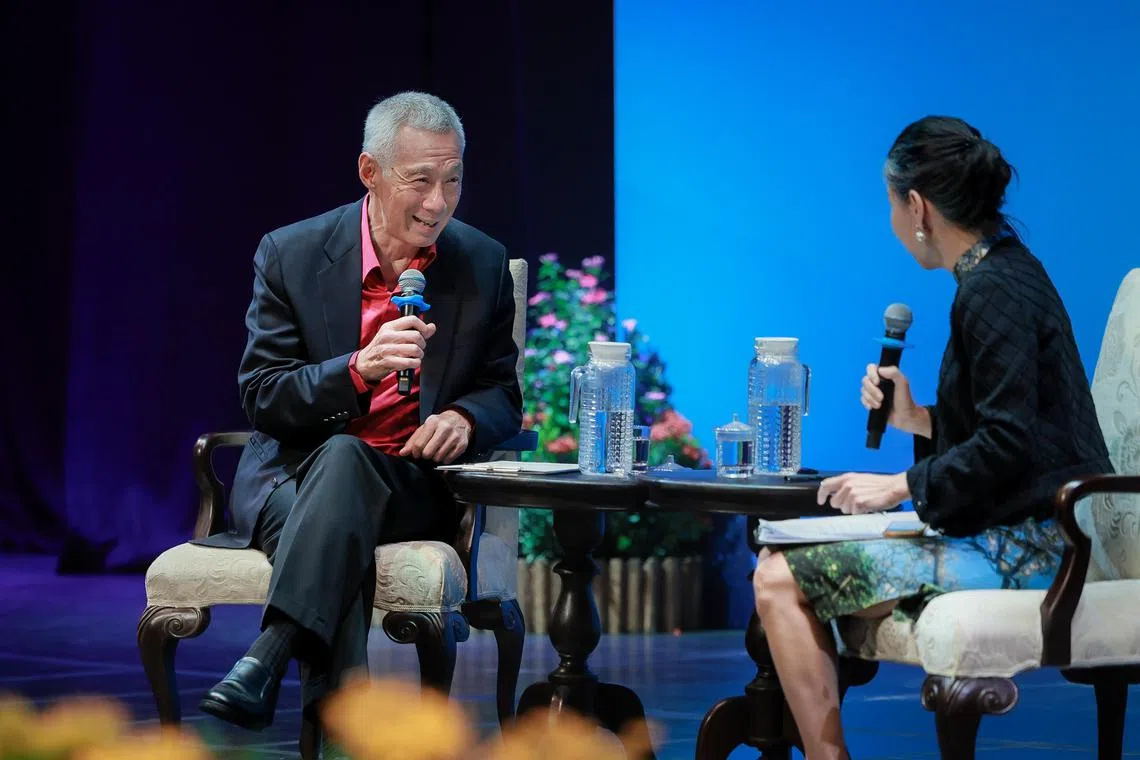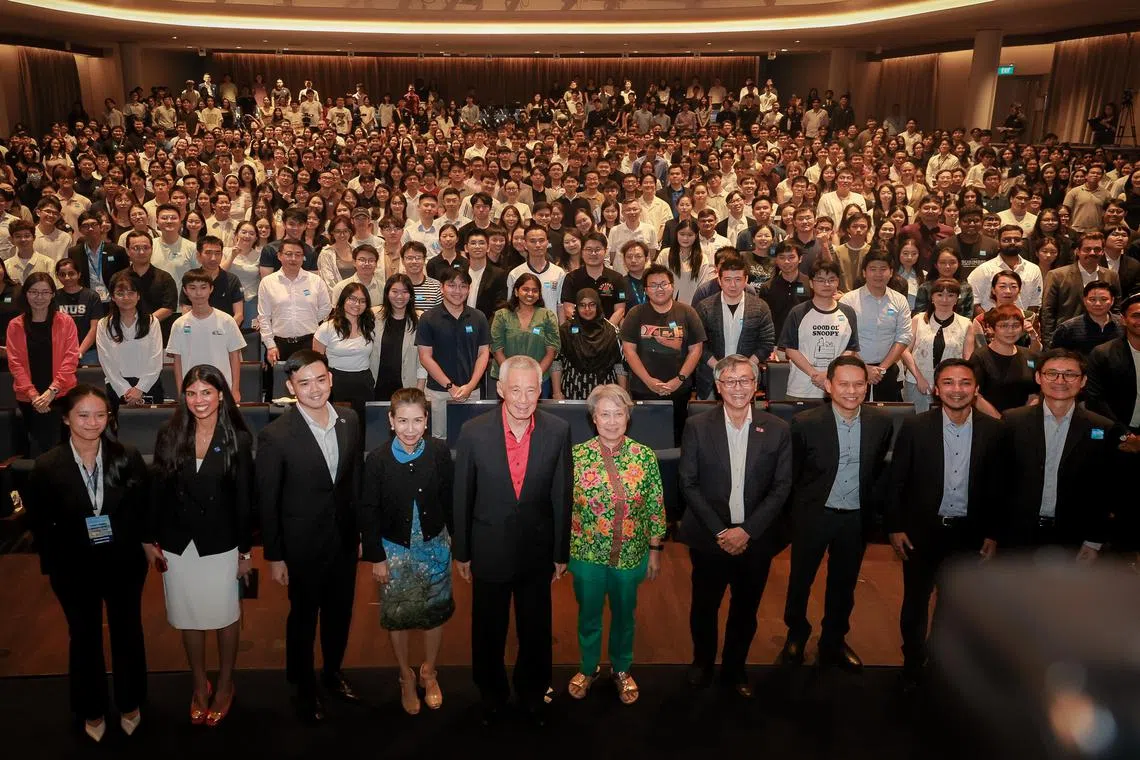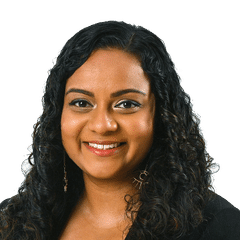National identity has different layers; S’pore has to guard against fault lines: SM Lee
Sign up now: Get ST's newsletters delivered to your inbox

Senior Minister Lee Hsien Loong said the Singaporean identity is stronger than before.
ST PHOTO: GAVIN FOO
SINGAPORE - Every generation will have its own crisis to overcome, and it is through those challenges that Singapore’s national identity is strengthened, Senior Minister Lee Hsien Loong said on Sept 9.
The Singaporean identity is stronger than before, with the country having navigated crises such as severe acute respiratory syndrome, the Asian Financial Crisis and the Covid-19 pandemic, he said, noting that it is now facing superpower rivalry and geopolitical disruptions.
At the same time, the national identity is multi-layered, he told an audience of about 800 students and academics during the Kent Ridge Ministerial Forum held at the University Cultural Centre in NUS.
“We are one people, but... we are not all identical, and there are fault lines which we have to guard (against),” he added.
Being a Singaporean is not necessarily the most important part of a person’s identity, he said during the wide-ranging dialogue that lasted almost two hours.
He pointed out nuances, saying: “We are also Chinese Singaporean or Malay Singaporean or Indian Singaporean. We are also Christians or Muslims or Buddhists.
“You may also have different political views. You may be pro-government, you may be pro-opposition.
“You may have different sexual orientations and therefore different circles of friends and different perspectives on the world, so these are all different layers to our identity, which are always there.”
For many Singaporeans, particularly Muslims and Christians, he said religion is a very important component of their identity, similar to how vernacular languages are important for older people amid a younger generation that predominantly speaks in English.

(From left) NUS students Chye Shu Fei Sophia, Esha Kejriwal and Lim Ming Yang with NUS Associate Professor Leong Ching, Senior Minister Lee Hsien Loong and his wife Ho Ching, NUS president Tan Eng Chye, NUS dean of students Ho Han Kiat, NUS vice-dean of students Elmie Nekmat and NUS Associate Professor Reuben Wong at the Kent Ridge Ministerial Forum on Sept 9.
ST PHOTO: GAVIN FOO
During the forum, SM Lee was asked if he viewed globalisation or domestic fault lines as the greater challenge to this sense of national identity.
He said that in the immediate term, Singapore is going to be pulled in very different directions by “powerful external forces”.
Muslims, for instance, are naturally much more upset about the war between Israel and Hamas, he said. Similarly, developments in India or China will have a greater pull on those communities.
“Our job is to resist that and to remember, yes, I am Muslim or I am Chinese or I am Indian, but I am also Singaporean, and I do hold something here, and I belong here, and I should look at the world starting from here,” SM Lee said.
Among the questions posed by students was one about how Singapore can keep its political system exceptional.
“Get good people into politics. Vote for good people to be your MPs and to be your ministers and work with them to make the country better. I think it is as simple as that,” SM Lee said.
“If good people cannot get elected, they cannot get things done... then I think the country cannot function the way it has done,” he said, citing the rapidly changing political situation in the region and beyond, including changes in prime ministers.
“When leaders change over rapidly, it is very difficult for you to have the time to make big changes or important policies... leave a lasting mark... and because you haven’t had time to leave a lasting mark, then the next person comes in, and he has a hard time,” he said.
People should not take advantage of getting elected and view it as their opportunity to “be the boss”, SM Lee added. “It is your opportunity to be the chief slave, to help look after the country so that you can hand it over and it is better.”
He also noted that an exceptional political system also requires “exceptionally sensible voters and responsible voters”.
“In Singapore, we have made it work like that for quite long, and I think we should try and keep it like that for as long as possible.”
Asked about the elected presidency
Currently, the president serves as a safeguard, including as the “second key” to the nation’s reserves.
While the scheme will likely continue evolving, SM Lee said the shape of the elected presidency is now “more or less what it needs to be”.
“I do not think there will ever be an end state, because as the world changes, Singapore changes, and you have to keep on adjusting, adapting, evolving,” he added.
On how Singapore should balance growth and social equity, SM Lee said he does not see the two as contradictory, and that growth is the initial step to benefiting a wider swathe of Singaporeans, so their lives can improve.
“If you do not have growth...the only way to make people who are not doing well do better is to take resources from people who are doing better than them,” he said.
“In other words, it is a zero-sum game – what I give to one person I must take from another person, (and) it becomes a very unhappy exercise.”
When the economy grows, the government can take some of the resources generated to help those who need more aid, he said.
“And as lives improve, as opportunities are created, Singaporeans can help themselves seize those opportunities and move ahead,” he said.
SM Lee added: “It is hard enough to get the growth we can. Don’t ask ourselves, maybe less growth will be better. I don’t believe that. Go for what we can and make the most of what we have.”
He made the point that resources are needed to provide good housing, healthcare and education.
“Singapore’s great good fortune is that for many years, we have grown very rapidly, and today we have vastly more resources than we did 60 years ago, and we have made good use of it, and we benefited a lot of Singaporeans, very broadly,” he said.
“I think that is how we have to continue to do it.”



